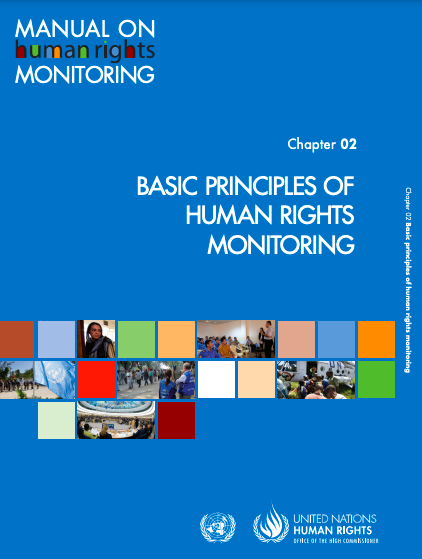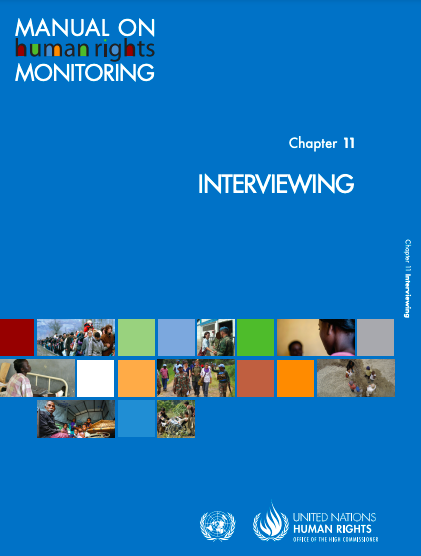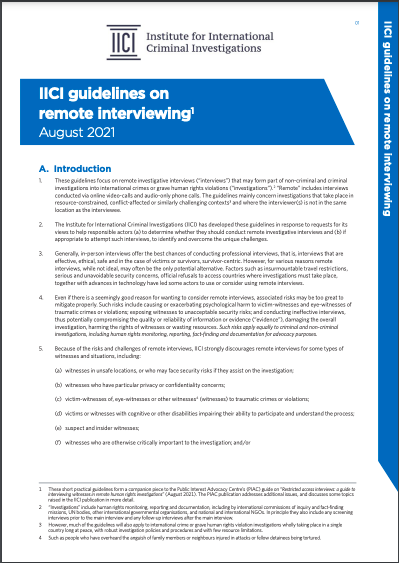Strongly Recommended:
- OHCHR Manual on Human Rights Monitoring, Chapter 2: "Basic Principles of Human Rights Monitoring"
Read over the Human Rights Monitoring Principles and think about how they would apply in a trauma-informed interview.
- OHCHR Manual on Human Rights Monitoring, Chapter 11: "Interviewing"
Please read section C of Chapter 11 of the OHCHR guide on human rights monitoring.
Additional Resources:
- Guidelines: "IICI Guidelines on Remote Interviewing"
This course focuses on trauma-informed interviewing techniques during in-person interviews. In fluid contexts such as armed conflict, in-person interviews are not always possible. Have a look at this resource to learn a bit more about how to conduct remote monitoring.







